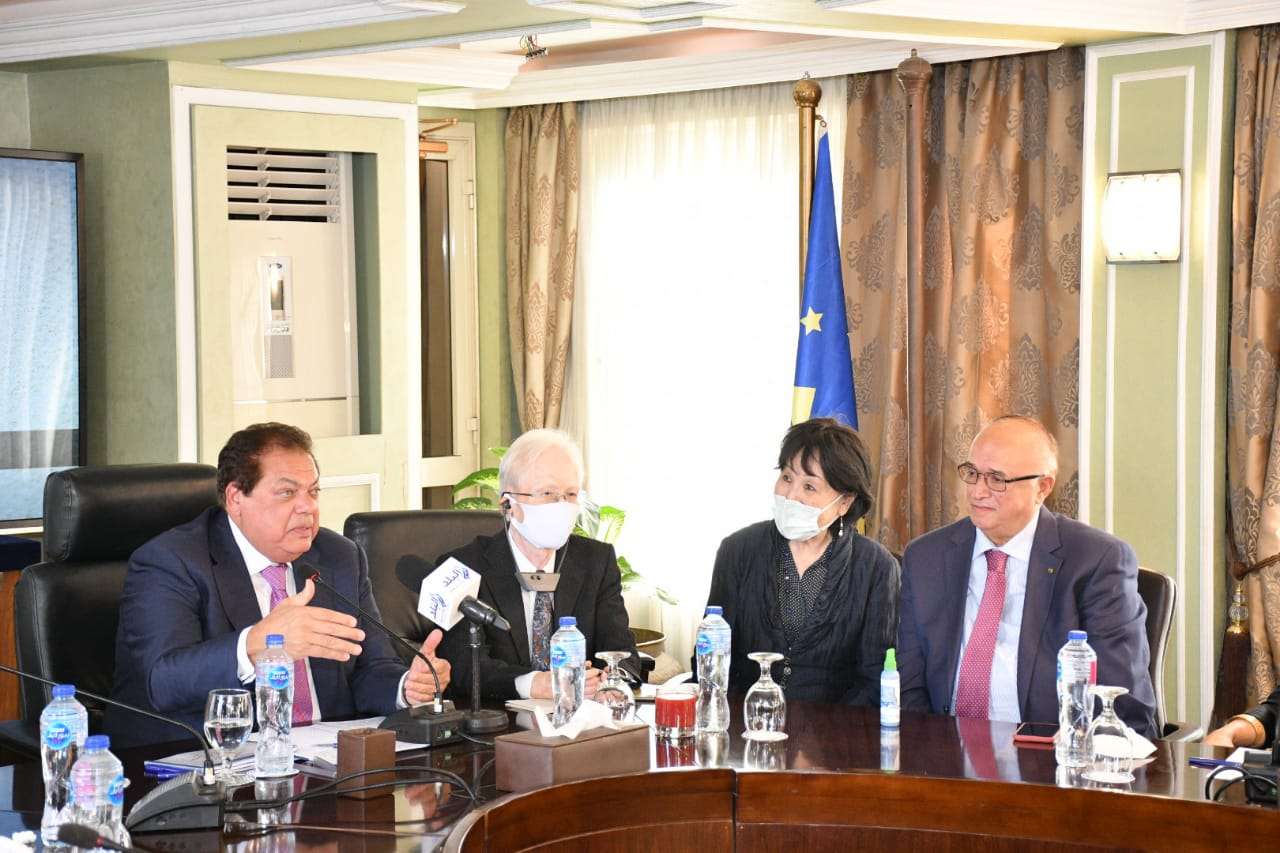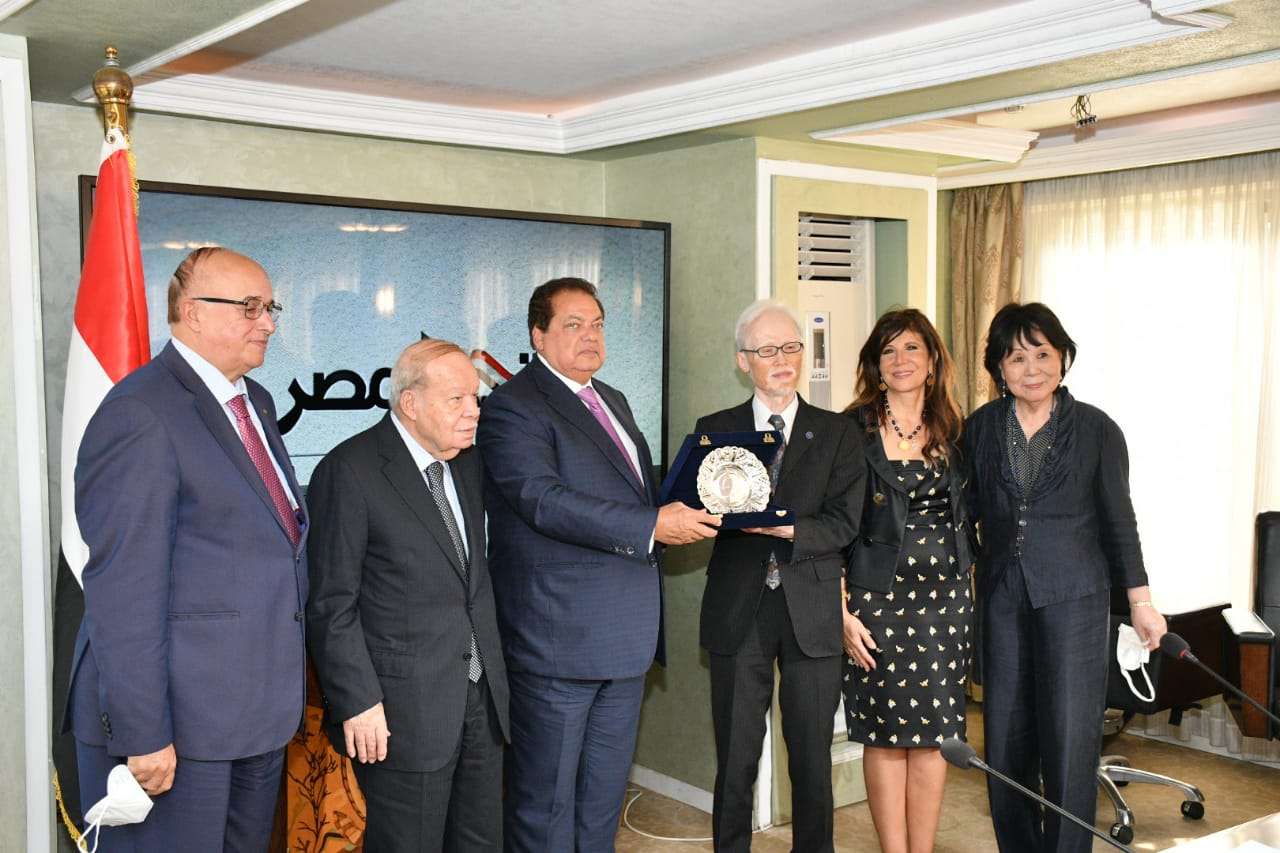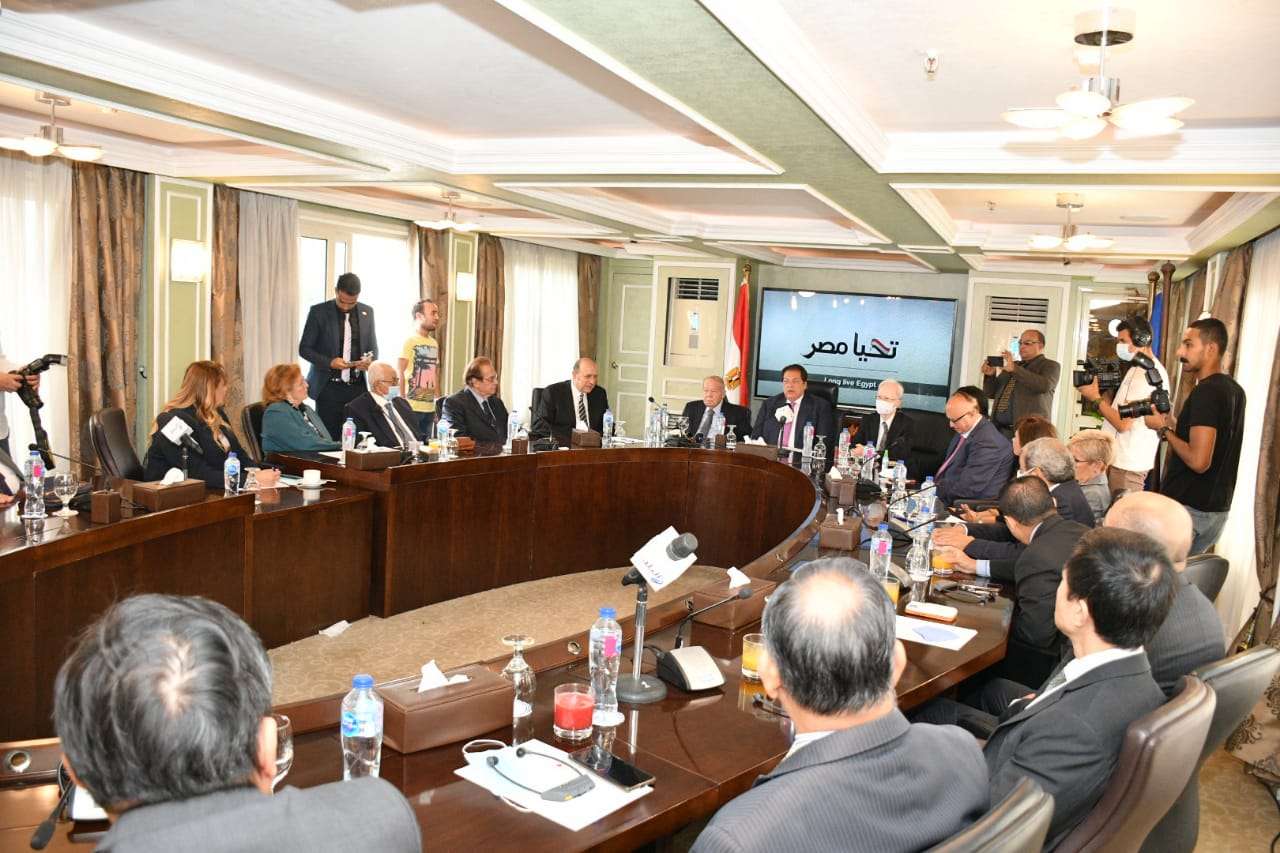MP Mohamed Abou El-Enein, Parliament Deputy Speaker, and Chairman of Egyptian-European Business council confirmed that the Egyptian state, thanks to the directives of President Abdel-Fattah El-Sisi, made a great effort in increasing the agricultural land areas, expanding fish farms, and establishing a medicine city, which reduced the effects of inflation on Egyptian citizens.
[caption id="attachment_287241" align="aligncenter" width="1280"] NCHR Vice-President: Abou El-Enein Served His Country for Decades[/caption]
NCHR Vice-President: Abou El-Enein Served His Country for Decades[/caption]
During an honoring ceremony held by the Egyptian European Council, to bid farewell to the Japanese ambassador in Cairo Noki Masaki, Abou El-Enein said that the challenge is still great in curbing inflation by controlling the interest rate and other measures to reduce demand and control inflation
The prominent MP added, "The global inflation will certainly cast a shadow over us as a result of the import of equipment, spare parts, raw materials, medicines, and some manufactured products, pointing out that President Sisi, since his first day in office, called for achieving self-sufficiency in wheat, as well as all strategic commodities.
[caption id="attachment_287235" align="aligncenter" width="1280"] Abou El-Enein and the Japanese ambassador[/caption]
Abou El-Enein and the Japanese ambassador[/caption]
The head of the Egyptian-European Business Council stressed, "On the other hand, we now have a great opportunity to present Egypt as an alternative source to persify production sources for major companies and attract investment."
[caption id="attachment_287243" align="aligncenter" width="1280"] The ceremony held by Egyptian European business council[/caption]
The ceremony held by Egyptian European business council[/caption]
"The country's infrastructure has greatly improved and the Egyptian labor force is highly-skilled," he noted.
He called for attracting investments through incentives, as we compete with other markets that work in the same direction, warning that the crisis of supply chains in the world, and the shortage in global supplies is pushing prices high and jeopardizing economic recovery.












